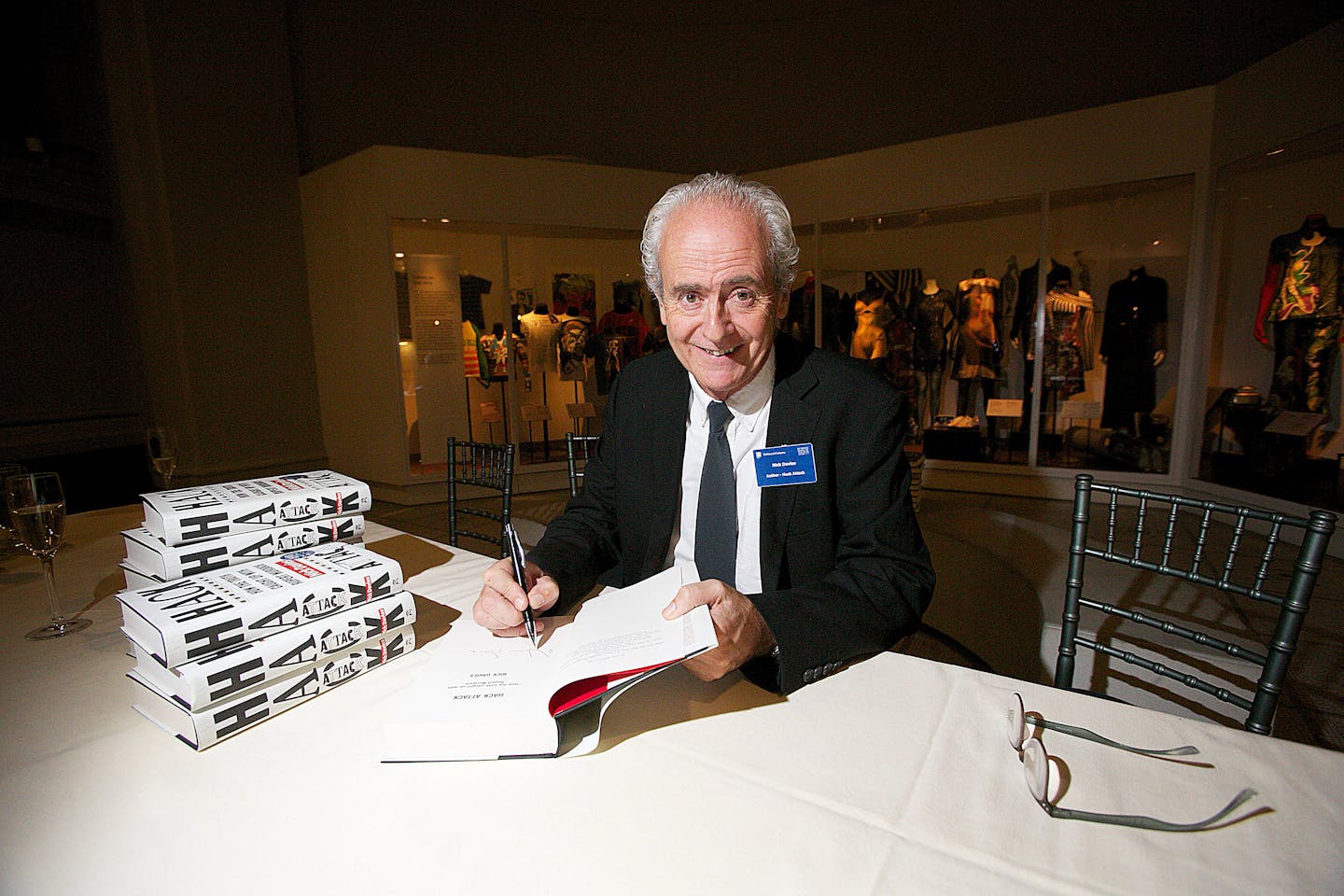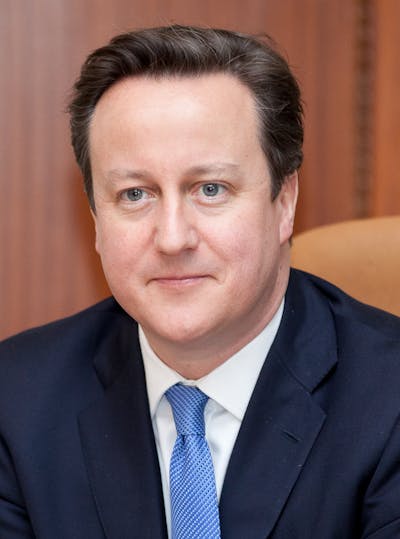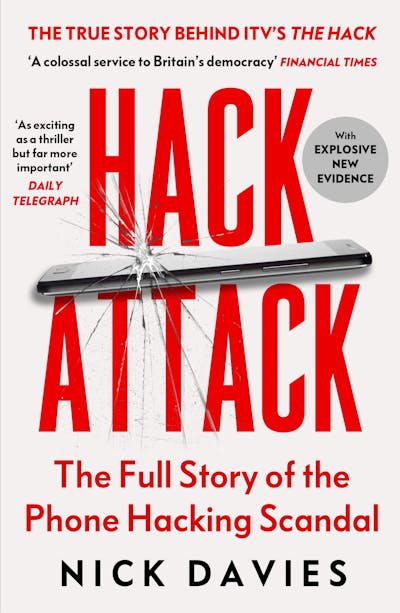
This is the humblest day of my life, declared Rupert Murdoch to a parliamentary committee on July 19, 2011. This was at the height of what the newspaper historian Roy Greenslade called “the most astonishing 14 days in British press history, with daily shock heaped upon daily shock”.
These dramatic events are now the subject of a series on Stan. Journalist Nick Davies recounted them in his 2014 book, Hack Attack: How the Truth caught up with Rupert Murdoch. That book has now been reissued with a new afterword, exploring the developments and revelations over the last decade. I have read the new chapter, and it casts yet more light on the Murdoch company’s extraordinary behaviour.
It began on July 5 2011, when Davies published an article in the Guardian saying Murdoch’s Sunday paper, the News of the World, had tapped teenage murder victim Milly Dowler’s phone. The scandal had been building – very slowly and far from surely – for almost five years, since August 2006, when a News of the World reporter and a private investigator were arrested for having tapped the phones of Princes William and Harry, and their entourages.
The investigative work of Davies and the editorial courage of the Guardian bore little immediate fruit during those years. But the dam wall broke when they published the story of a cynical newspaper tapping the phone of a teenage murder victim.

Politicians competed with each other in the ferocity of their denunciations. News International closed the News of the World, and in the face of opposition from all three major political parties, Murdoch abandoned his attempt to raise his ownership of satellite broadcaster BSkyB from 39% to 100%, which would have been the largest deal in his history. On successive days, London’s chief police officer and one of his deputies resigned because of their close relations with Murdoch papers. Rupert and James were forced to appear before a parliamentary committee, televised live.
Last, but far from least, Prime Minister David Cameron launched an inquiry, to be directed by Lord Leveson, to examine the scandal and the issues it raised. The ensuing Leveson Inquiry, which ran over 2011 and 2012, was the biggest inquiry ever held into the British press.
It held oral hearings for around nine months, starting in November 2011, and heard from 337 witnesses, including then prime minister Cameron, former prime ministers Gordon Brown, Tony Blair and Sir John Major, future prime ministers Theresa May and Keir Starmer, and other political and media figures, before publishing a 2,000-page report in November 2012.
The police also sprang into action. Operation Weeting was a police taskforce set up to investigate phone hacking at the News of the World, from January 2011. In June, Operation Elveden was set up to investigate bribes by the paper to police, while Operation Tuletta was set up to investigate computer hacking.
An unfolding scandal
The original scandal revealed that Murdoch’s London tabloid papers engaged in phone tapping on an industrial scale, bribed police and engaged in a systematic cover-up, in which many senior executives lied.
Most scandals dissipate. The intensity of publicity at their peak is not a good guide to their long-term effects. Murdoch gradually reasserted his power. The first major step came with the end of what was the longest-running concluded criminal trial in British history, from October 2013 to June 2014.
Most of Murdoch’s employees, including the highest profile one, Rebekah Brooks, were found not guilty. However, former News of the World editor Andy Coulson was found guilty of a conspiracy to hack into phones and was jailed for 18 months.
In many ways, the defence’s most important victory came before the trial began. Brooks’ team insisted that to hear just one trial against her would generate so much prejudicial publicity it would make it impossible for a fair trial in the others. Some of her charges involved other people. So when the trial eventually began in October 2013, there were eight defendants on a total of 15 charges. This was a recipe for chaos.
Almost all the defendants had their legal fees covered by Murdoch. Davies estimated the cost of the prosecution of the case had been 1.7 million pounds, while Murdoch’s defence fund was 30 times as much. The prosecutor, Andrew Edis, was being paid less than 10% of the daily fees enjoyed by some of his opponents. With up to 18 barristers in court, nearly every day saw a welter of procedural complaints, objections to the admissibility of evidence and complaints about prejudicial publicity by several of the defence barristers.
After the verdicts, announced on June 24 2014, all the publicity was concentrated on the acquittals. However outside the court case itself, the full score card was more even. At least four senior staff, plus a private investigator and two journalists had pleaded guilty. Importantly for the trial, only one, Dan Evans, agreed to act as a witness.
In July 2011, at the height of the scandal, Brooks resigned as head of Murdoch’s UK operations, and reportedly received a severance payout of 10.8 million pounds (plus full payment of her legal fees). After the trial, Murdoch reinstated her.

After the conclusion of the marathon trial, media attention dropped markedly. A sign of how the power balance had changed was that Davies had written in the Guardian that the police were planning to interview Rupert Murdoch. Immediately, the Murdoch company released all its legal firepower. The police abandoned their plan to interview Murdoch and instead sought to discover Davies’ sources.
The final steps in Murdoch’s recovery came thanks to Prime Minister David Cameron and his conservative government. When the scandal broke in 2011, the Conservatives were in a coalition government with the Liberal Democrats, lacking a parliamentary majority in their own right. In the 2015 election, the Lib Dems were reduced to a rump, and Cameron’s Conservatives won a smashing majority. Now with that extra political leverage and the memories of the scandal fading, he acted decisively.
When the Leveson Report was published, a second inquiry was promised, to take place after all legal matters had been completed, so as to avoid the risk of prejudicing court proceedings. When that first report called for a statutory body for press complaints, Cameron immediately ruled it out as an infringement of press freedom. In 2015, government sources leaked that they would not be implementing a second Leveson Inquiry. After more than two years of studied silence, Cameron officially announced this in 2018.
Paying money and denying liability
Not long after the election where Cameron won a majority, the director of public prosecutions closed down Operation Weeting, in December 2015. Whatever evidence was waiting to come to trial would now remain sealed. The police officers involved were stunned and outraged. Several told Davies they believed there was political interference behind the scenes.
In 2017, the Murdoch company announced it was relaunching its bid for BSkyB. Humility was well in the past.
Although the scandal largely disappeared from news coverage, it has had a very expensive afterlife. The main venue for that afterlife was in the civil actions by those claiming the paper had used criminal means to invade their privacy. Davies’ afterword details that afterlife and the revelations that have come since.
More than 1,200 people have sued the Murdoch company over the years. On 13 different occasions, they had grouped together and prepared a trial. However, on each occasion the claimants had accepted an offer of money, rather than further pursuing their case in a trial, because Murdoch’s lawyers had made each of them a “part 36 offer”.
A part 36 offer is a British legal device designed to streamline court proceedings. The defendant makes an offer and the claimant then has a financial incentive to settle if they think this is more than they would get by going through the rest of the trial. If they don’t accept, the claimant runs the risk of being liable for all expenses if they lose. But even if they win, and the settlement is less than what the defendant offered, they are liable for the defendants’ legal costs and the difference between the two amounts.
In every case, the Murdoch lawyers offered a much larger sum than was ever likely to be given by the court, always without admitting any liability, and always with a confidentiality condition. It cost the Murdoch company something like 1.2 billion pounds in legal fees and settlements.
Another journalist who had been very actively pursuing the scandal, former Sunday Mirror investigations editor Graham Johnson (a convicted phone hacker turned investigator), thought after all the internal costs for management time and lawyers were included, the figure would be nearer to 3 billion pounds. Probably no other company in history has paid so much money and so often denied liability.
But it worked. It allowed the company to publicly maintain the fiction it was only at the News of the World (and not at the Sun) that such crimes occurred. It also avoided any evidence or legal findings implicating senior management of any wrongdoing.
The most recent such settlement, in January this year, was the biggest and most newsworthy. “Murdoch had made one particularly dangerous enemy Prince Harry, a man who had every reason to blame the tabloids for the death of his mother and the cruel bullying of his wife.” With him was former Labour MP Tom Watson, a long-time foe of the Murdochs. He now sat in the House of Lords, and with that bipartisan British fondness for silly names, had become Baron Watson of Wyre Forest.
Informed speculation among the crowd gathered for the opening of the trial was that the claimants’ lawyers had put together a skeleton argument of several hundred pages backed up by a couple of dozen detailed annexes. Also that Murdoch lawyers had sent out their own replies to selected journalists. All this material would become public once the trial began.
Instead, predictably, a delay was requested. The next morning, the lawyer for Harry and Watson announced the case had been settled.
In settling the case, the Murdoch company had agreed to pay the two final claimants a total of 13.5 million pounds in damages and costs. If the trial had gone ahead, costs to the Murdoch company would have been, at most, 10 million pounds. In other words, the company had paid a fortune to avoid the trial, just as they had already done with more than 1,200 other claimants.
Given the total size of the Murdoch empire, this sum is not an existential threat, but it is not trivial. For at least two decades from the mid 1970s, the Sun was Murdoch’s main cash cow, allowing him to grow his empire elsewhere. Now it has fallen on hard times, mainly due to trends in the digital age but not helped by the ongoing costs of the scandal.
Over the five financial years to March 2024, the paper’s losses totalled 515 million pounds. Gradually, the costs of the phone hacking scandals are trending down, costing 128.3 million to 2023, 51.6 to 2024, and to 5 million leading up to this year (before the Harry agreement is completed).
After the settlement, lawyers for the two sides made starkly contrasting statements. The Murdoch lawyer said its apology was for the unlawful actions of private investigators working for the Sun, not of its journalists, and that there are now strong controls to ensure they cannot happen again. The publisher apologised to the prince for the distress caused to him and the damage inflicted on relationships, friendships and family relationships, and for the impact of serious intrusions on his mother, Princess Diana.
The lawyer, David Sherborne, speaking for his clients Harry and Watson, called it a monumental victory. “Today the lies are laid bare. Today the cover-ups are exposed. And today proves no-one stands above the law.” Sherborne criticised Murdoch’s senior executives for obstructing justice by deleting over 30 million emails, making false denials and lying under oath. According to Sherborne, they now admit that when Rebekah Brooks was editor of the Sun, “they ran a criminal enterprise”.
Closed cases and new material
Davies finishes the new edition of his book with the outcome of this case. Ironically, one of the spurs for him to write the new afterword emerged from all the confidentially closed cases.
In March 2024, he learnt that the raw material disclosed as a result of court orders was confidential. The secrecy no longer applies, however, once material is used in open court. Davies was able to access what lawyers had said in court. It would have been frustrating to read these excerpts and fragments of statements but not be privy to the complete documents.
He spent a week reading through all the new paperwork. And then he was back on the case.
In the original scandal, the focus was on the Murdoch tabloids for using illegal means to get information for stories. Davies’ new material mounts a compelling case they were also used to advance Murdoch’s corporate interests.
The immediate response, for example, when Jude Law sued the paper for hacking his phone over the past six years was to hack his phone again. This was at the same time various Murdoch executives were telling the Leveson Inquiry that all such behaviour was in the past.
An email disclosed during a criminal investigation showed reporters were told to find out everything about people who were seen to be stirring up the phone hacking scandal: “find out who is gay, who is having affairs, so that we can know everything about them”. This is standard Murdoch practice: when criticised, don’t engage with the criticism – attack the critic.

Indeed, Davies himself had a disconcerting experience. Years after it was compiled, he came across a file headed: Nick Davies Research. It dated back to July 2009, when he had done a story on phone hacking. At one stage, three reporters worked on it, with some input from higher up. It explored his 20-plus years in journalism and interviewed his associates, but came up with nothing not already on the public record. As he said, this was not legitimate journalism. “Their readers weren’t interested in me. They had never heard of me.”
While the initial complaints tended to be from movie stars and sports stars, later complainants included quite a number of politicians: all seen as hostile to Murdoch.
In 2010, the only prominent politician strongly critical of Murdoch was LibDem frontbencher Chris Huhne. “We need to get Huhne,” said News of the World editor Colin Myler in an email. After extensive surveillance, his newspaper published a front-page story that Huhne was having an affair. His marriage ended and his credibility was damaged.
A decade later, he sued, and Murdoch paid him substantial damages – without admitting liability.
Two politicians near the centre of government decisions on the BSkyB bid – Norm Lamb and Vince Cable – had well-founded suspicions their phones were hacked. Later they both sued, and Murdoch paid them substantial damages – without admitting liability.
Three members of the parliamentary committee who interviewed Murdoch in 2011 – Paul Farrelly, Tom Watson, and Adrian Sanders – all filed formal complaints about phone hacking. Murdoch paid them all substantial damages – without admitting liability.
The last case is particularly instructive. When Murdoch appeared before the committee, he was full of regret and apology. He promised that bad behaviour had been confined to the News of the World, and was now over. Yet, while he was giving these reassurances, his company seems to have been hacking the phones of three of the MPs on that committee.
A deeper understanding of the Murdoch empire
The final area where the book has new and persuasive material is on the destruction of evidence. While there were many allegations of this at the peak of the scandal, none of them ever resulted in any convictions.
The company always admitted the deletion of millions of emails but maintained this was a necessary maintenance operation. Some inconvenient facts did not fit this claim, such as the instruction to eliminate emails “that could be unhelpful in the context of future litigation”. Or at another stage, there was an instruction to delete the emails of the most senior staff as soon as possible.
Two instances, both involving Will Lewis, now editor of the Washington Post (appointed by Jeff Bezos) are particularly interesting.
In July, Lewis and a colleague were aware the police knew about the extent of the phone hacking. They told police they had to destroy them because a “well trusted source” had warned them a former employee, a Labour sympathiser, had stolen Rebekah Brooks’ emails and was selling them to Tom Watson and Gordon Brown. The company claimed they got this warning on January 24, just before the launch of Operating Weeting.
But strangely, they did not tell any detectives about it. Moreover, deleting millions of emails seems an odd response to the threat. Not surprisingly, detectives concluded the story of the plot was a “ruse”.
Lewis was also one of two senior executives whose role was to liaise with the police undertaking Operation Weeting. Police had secured a crime scene which included 125 pieces of office furniture seized in July. Before detectives could examine their contents, eight filing cabinets belonging to senior members of the News of the World were removed and never seen again.
Last year, in a sworn statement in the Prince Harry case, the detective in charge of Operation Weeting, Sue Akers, said she believed the Murdoch company had tried actively to frustrate the police inquiry.
There has never been a media scandal in Britain or Australia remotely resembling the phone hacking scandal of 2011. Probably no major players in Britain – in politics or in the press – has an appetite for reviving it.
So the new edition of the book by Nick Davies – whose investigative work was central to the whole affair – is unlikely to have major repercussions. Nevertheless, the revelations in the book’s afterword add considerably not only to our knowledge of developments over the last decade, but to a deeper understanding of the politics and culture of the Murdoch empire.
This article is republished from The Conversation, a nonprofit, independent news organization bringing you facts and trustworthy analysis to help you make sense of our complex world. It was written by: Rodney Tiffen, University of Sydney
Read more:
- Friday essay: I loved being a ‘90s rock journalist, but sometimes it was a boys’ club nightmare
- The latest Tory defector to Reform wrote David Cameron’s ‘hug a hoodie’ speech – here’s why that matters now
- Friday essay: what can we learn about a city from its writers?
Rodney Tiffen does not work for, consult, own shares in or receive funding from any company or organisation that would benefit from this article, and has disclosed no relevant affiliations beyond their academic appointment.


 The Conversation
The Conversation
 PBS NewsHour
PBS NewsHour The Daily Beast
The Daily Beast The US Sun Travel
The US Sun Travel FOX 32 Chicago Politics
FOX 32 Chicago Politics Fox 11 Los Angeles Politics
Fox 11 Los Angeles Politics Page Six
Page Six FOX19 NOW Sports
FOX19 NOW Sports